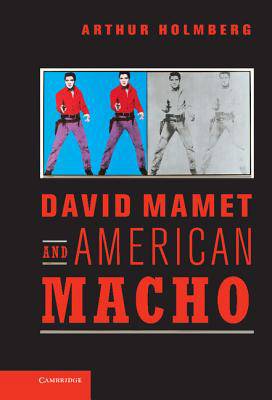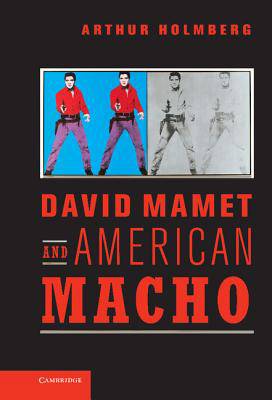
Door een staking bij bpost kan je online bestelling op dit moment iets langer onderweg zijn dan voorzien. Dringend iets nodig? Onze winkels ontvangen jou met open armen!
- Afhalen na 1 uur in een winkel met voorraad
- Gratis thuislevering in België vanaf € 30
- Ruim aanbod met 7 miljoen producten
Door een staking bij bpost kan je online bestelling op dit moment iets langer onderweg zijn dan voorzien. Dringend iets nodig? Onze winkels ontvangen jou met open armen!
- Afhalen na 1 uur in een winkel met voorraad
- Gratis thuislevering in België vanaf € 30
- Ruim aanbod met 7 miljoen producten
Zoeken
Omschrijving
Why did Americans reject the British gentleman as their dominant model of masculinity? Why is a boy's relationship to his mother a crucial factor in shaping his masculinity? What and how do boys learn about what it means to be a man? Holmberg demonstrates how David Mamet's plays provide insights into these questions, and into the masculine malaise. Through the gangsters, businessmen, soldiers, sailors, athletes, frontiersmen and thugs he created, Mamet celebrates and criticizes American macho. The book provides close readings of Mamet's well-known plays as well as plays which have not previously received the critical attention they deserve, and includes discussions of recent films and unpublished film scripts that shed light on Mamet's attitudes to American macho. Holmberg also presents detailed analysis of Mamet as director of his own plays, which gives fascinating insights into the playwright's intentions through his instructions to actors on how to play a part.
Specificaties
Betrokkenen
- Auteur(s):
- Uitgeverij:
Inhoud
- Aantal bladzijden:
- 322
- Taal:
- Engels
- Reeks:
- Reeksnummer:
- nr. 28
Eigenschappen
- Productcode (EAN):
- 9780521620642
- Verschijningsdatum:
- 26/03/2012
- Uitvoering:
- Hardcover
- Formaat:
- Genaaid
- Afmetingen:
- 157 mm x 231 mm
- Gewicht:
- 639 g

Alleen bij Standaard Boekhandel
+ 345 punten op je klantenkaart van Standaard Boekhandel
Beoordelingen
We publiceren alleen reviews die voldoen aan de voorwaarden voor reviews. Bekijk onze voorwaarden voor reviews.











